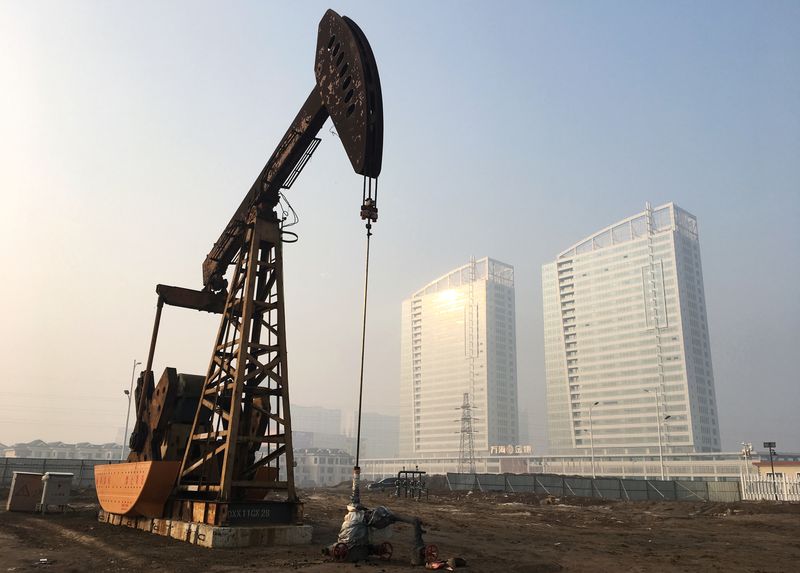By Arathy Somasekhar
HOUSTON (Reuters) -Oil prices climbed about 1% on Wednesday as Saudi Arabia's plans for deep output cuts more than offset demand woes stemming from rising U.S. fuel stocks and weak Chinese export data.
Brent crude futures settled 66 cents, or 0.9%, higher at $76.95 a barrel, while U.S. West Texas Intermediate crude futures gained 79 cents, or 1.1%, to $72.53.
Both benchmarks jumped more than $1 on Monday after Saudi Arabia's decision over the weekend to reduce output by 1 million barrels per day (bpd) to 9 million bpd in July.
"Futures seem to be in a 'tug of war' with slowing demand for manufacturing, and lighter diesel demand, against expected production cuts coming from OPEC & Saudi," said Dennis Kissler, senior vice president of trading at BOK Financial.
U.S. crude stocks fell by about 450,000, according to data from the Energy Information Administration, compared with estimates for a 1 million build.
Diesel inventories rose by 5.1 million barrels, while markets had estimated a build of 1.33 million. Gasoline inventories also rose more-than-expected at 2.8 million barrels, compared with estimates for a build of 880,000 barrels.
The unexpected build in fuel inventories raised concerns over consumption by the world's top oil user, especially as travel demand grew during the Memorial Day weekend.
Prices fell earlier in the session on weak Chinese economic data.
China's exports shrank much faster than expected in May and imports fell, albeit at a slower pace, as manufacturers struggled to find demand abroad and domestic consumption remained sluggish.
Wednesday's data also showed that crude oil imports into China, the world's largest oil importer, rose to their third-highest monthly level in May as refiners built up inventories.
A JP Morgan (NYSE:JPM) note said forward crude cover in the country has climbed, indicating refiners have not increased processing rates but are instead storing oil.

Also, supporting prices, the dollar dipped as chances faded for a Federal Reserve rate hike next week. A weaker greenback helps demand as oil becomes cheaper for foreign buyers.
Global economic growth will pick up only moderately over the next year as the full effects of central bank rate hikes are felt, the Organisation for Economic Cooperation and Development said, the latest to flag the impact of monetary tightening.